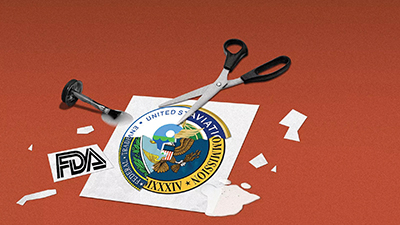
Battles over the federal government’s power will likely define a lot of the conservative Supreme Court’s future.
- That will likely include voting rights, as well as a sustained effort to restrict the authority of regulatory agencies in the executive branch, Axios’ Sam Baker writes.
Why it matters: These cases don’t always feel like blockbusters in isolation. But they can constrain federal power in ways that are almost impossible to reverse, with dramatic implications across policy areas.
What’s happening: Abortion has been the biggest animating force in the conservative legal movement for decades. Now that the Supreme Court has overturned Roe — sooner than some advocates expected — other long-term projects will get more of the right’s legal and political energy.
Just in the past few months, the court …
- Prevented the CDC from enforcing an eviction moratorium due to COVID.
- Prevented OSHA from enforcing a vaccine mandate in workplaces.
- Prevented the EPA from carrying out some of its most aggressive proposed limits on greenhouse gasses.
Some of the issues are bigger than others. But each of those cases raised questions about overarching legal principles of executive-branch authority.
- Taken together, it’s clear which direction things are headed: The federal government is going to be able to do a lot less than in the past.
- But even the conservative justices aren’t united on how far to go.
How it works: Several of the court’s conservative justices are highly skeptical of “Chevron deference” — the principle that, if a particular law isn’t clear on its face, courts will generally defer to the interpretation of the agency implementing that law.
- In striking down EPA regulations, the OSHA vaccine mandate and the CDC’s eviction moratorium, the court leaned heavily on a different but related legal test — the “major questions” doctrine.
*It holds that executive-branch agencies can’t rely on general authority from Congress to justify particularly sweeping actions.
*What we’re watching: At the outer bound of this campaign is the “nondelegation doctrine” — a theory that Congress cannot delegate to the executive branch any of the powers the Constitution gives to Congress.
*At least three justices — Neil Gorsuch, Clarence Thomas and Samuel Alito — seem to want to bring it back.


Be the first to comment